第22章 OUR COUNTRY NEIGHBOURS(3)
This thoughtless, dapper individual, with his bright green coat, his faultless white vest, and sea-green tights, became rather the popular favourite. He seemed just rakish and gallant enough to fulfil the conditions of the song "The frog he would a-courting ride, With sword and pistol by his side."
This lively young fellow, whom we shall call Cri-Cri, like other frisky and gay young people, carried the day quite over the head of the solemn old philosopher under the calla-leaves. At night, when all was still, he would trill a joyous little note in his throat, while old Unke would answer only with a cracked guttural more singular than agreeable; and to all outward appearance the two were as good friends as their different natures would allow.
One day, however, the conservatory became the scene of a tragedy of the deepest dye. We were summoned below by shrieks and howls of horror. "Do pray come down and see what this vile, nasty, horrid old frog has been doing!" Down we came; and there sat our virtuous old philosopher, with his poor little brother's hind legs still sticking out of the corner of his mouth, as if he were smoking them for a cigar, all helplessly palpitating as they were. In fact, our solemn old friend had done what many a solemn hypocrite before has done,--swallowed his poor brother, neck and crop,--and sat there with the most brazen indifference, looking as if he had done the most proper and virtuous thing in the world.
Immediately he was marched out of the conservatory at the point of a walking-stick, and made to hop down to the river, into whose waters he splashed, and we saw him no more. We regret to say that the popular indignation was so precipitate in its results; otherwise the special artist who sketched Hum, the son of Buz, intended to have made a sketch of the old villain, as he sat with his luckless victim's hind legs projecting from his solemn mouth. With all his moral faults, he was a good sitter, and would probably have sat immovable any length of time that could be desired.
Of other woodland neighbours there were some which we saw occasionally. The shores of the river were lined here and there with the holes of the muskrats; and in rowing by their settlements, we were sometimes strongly reminded of them by the overpowering odour of the perfume from which they get their name. There were also owls, whose nests were high up in some of the old chestnut-trees. Often in the lonely hours of the night we could hear them gibbering with a sort of wild, hollow laugh among the distant trees. But one tenant of the woods made us some trouble in the autumn. It was a little flying-squirrel, who took to making excursions into our house in the night season, coming down the chimney into the chambers, rustling about among the clothes, cracking nuts or nibbling at any morsels of anything that suited his fancy. For a long time the inmates of the rooms were awakened in the night by mysterious noises, thumps, and rappings, and so lighted candles, and searched in vain to find whence they came; for the moment any movement was made, the rogue whipped up the chimney, and left us a prey to the most mysterious alarms. What could it be?
But one night our fine gentleman bounced in at the window of another room, which had no fireplace; and the fair occupant, rising in the night, shut the window, without suspecting that she had cut off the retreat of any of her woodland neighbours. The next morning she was startled by what she thought a gray rat running past her bed. She rose to pursue him, when he ran up the wall, and clung against the plastering, showing himself very plainly a gray flying-squirrel, with large, soft eyes, and wings which consisted of a membrane uniting the fore paws to the hind ones, like those of a bat. He was chased into the conservatory, and a window being opened, out he flew upon the ground, and made away for his native woods, and thus put an end to many fears as to the nature of our nocturnal rappings.
So you see how many neighbours we found by living in the woods, and, after all, no worse ones than are found in the great world.